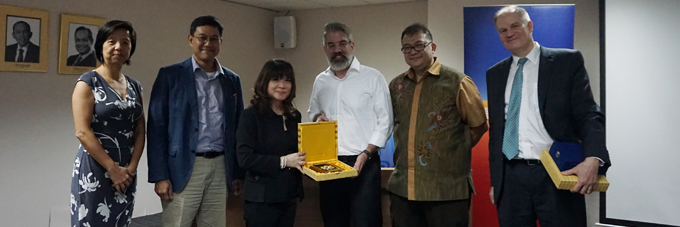Welcome
Unveiling ‘The Innovation Paradox’: The Importance of Managerial Skill and Innovation Capacity to Raising Productivity

On 29 March 2018, EuroCham Indonesia conducted a seminar on the new World Bank report “Innovation Paradox” together with KADIN Indonesia and The World Bank. The discussion emphasized on the vast potential gains that developing countries, including Indonesia, can gain by innovating in products, processes, and upgrading the quality of goods. The report argues that significant improvements are required from both private-sector firms and public-sector policymakers to move countries closer to the “technological frontier”.
William F. Maloney (Chief Economist of the World Bank Group), emphasized the adoption of better firm-level managerial and organization practices as critical factors that are often overlooked by developing-country firms. He further highlighted the low investment company does in these actions.
From the business perspective, Mr. Tim Grieger (Technical Director of Commercial Vehicles, Mercedes-Benz Indonesia) echoed the findings from the study and shared that supportive management and company culture are important aspects in nurturing innovation culture in the company. These practices are also the building blocks to developing more sophisticated innovation projects that include the invention of new products and technologies.
During the same event, Mr. Maloney also mentioned the urgency in public sector to provide more support that will spur innovative thinking. The report proposes a conceptual framework, the "capabilities escalator," where policies to support firm upgrading are sequenced in accordance with the level of capabilities of the private sector, as well as of policymakers and institutions, and ratchet up through progressively higher stages of sophistication.
Back